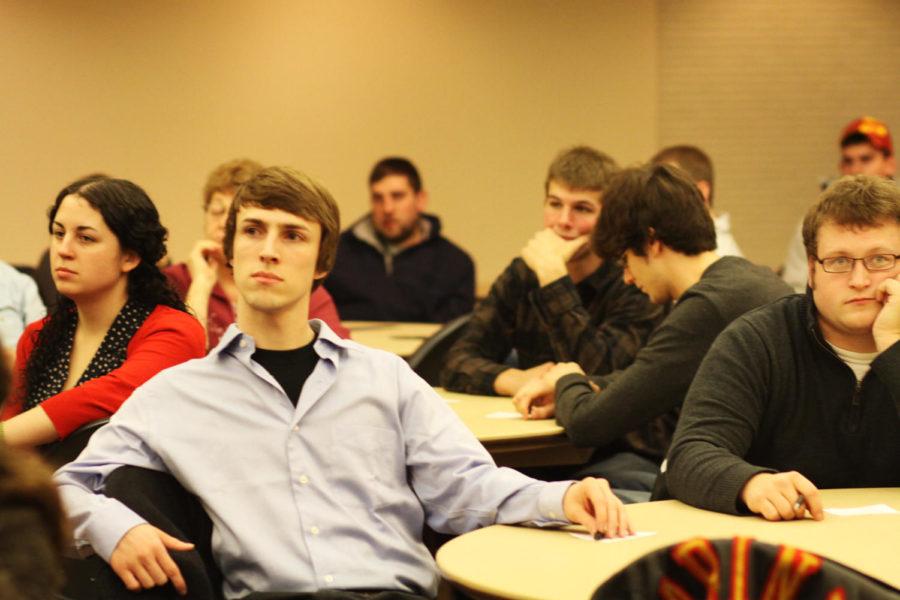Editorial: To caucus or not to caucus, class is the question
Photo: Grace Steenhagen/Iowa State Daily
Caucus-goers at St. John’s by the Campus listen as the party representatives speak on behalf of their candidates Tuesday, Jan. 3.
January 29, 2016
With the first-in-the-nation Iowa caucuses rapidly knocking on our state’s door, students attending Iowa colleges may have a choice to make: go to class or go to caucus.
There are 884 ISU students who have class or labs between 7 and 9 p.m. Monday, according to an Inside Iowa State notice, which makes up about 2.5 percent of our student population.
“Bottom line, Iowa State has never cancelled classes for the Iowa caucuses, and we don’t plan to do so this year,” ISU spokeswoman Annette Hacker told The Des Moines Register on Monday. Students are held responsible for contacting instructors themselves to negotiate an absence.
This number, in addition to the other colleges and universities in Iowa can add up to a good chunk of the eligible caucusgoers in the state of Iowa.
College students represent a large pool of potential voters. Multiple issues swirling candidates’ platforms, debates or town halls include topics directly related to college students, such as paying for college and the increasing student debt rates. The average millennial carries with them $45,000 in debt after college, according to PNC Financial Services. Iowa students aren’t far behind, graduating with an average of about $29,000.
The millennial generation is the most politically-involved to date. The Pew Research Center states they elected our president — 60 percent voted for Obama in 2012, 66 percent in 2008, and that same age group will be more than 40 percent of the electoral vote in 2020. In 2008, according to The Atlantic, 48 million millennials born between 1978 and 2000 were eligible to vote, and 25 million actually did.
About 60 percent of millennials are worried about the state of the world and feel personally responsible to make a difference, according to The Huffington Post. The Bentley’s University Center for Women and Business found that 84 percent of millennials say helping to make a positive difference in the world is more important than gaining professional recognition.
Inside Iowa State, a news source about Iowa State for faculty and staff, released a notice Thursday quoting Provost Jonathan Wickert saying the situation for a three-hour lab that only meets Monday nights is different from a one-hour class that meets three times a week, and said,
“Missing another week of a course represents a lot of the total time available for learning. We need to be careful that we’re not short-changing students on course content or compressing too much material into the remaining weeks.”
To not use the caucuses as an excused absence is a form of interfering with the students’ constitutional right and duty.
Though not every student plans to caucus or understands the caucus process, it is important for the university to send the message and reinforce the unique civic opportunity presented to students.
















